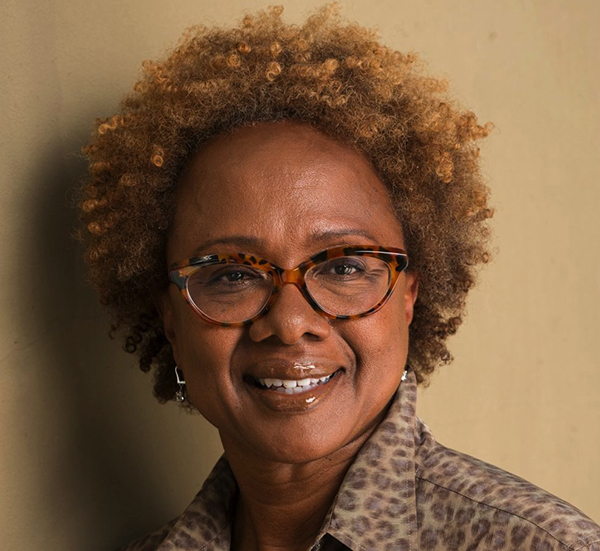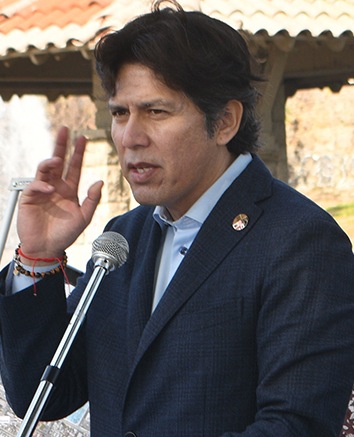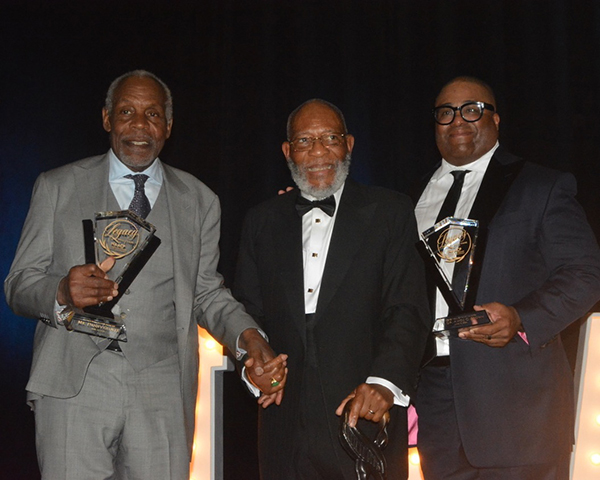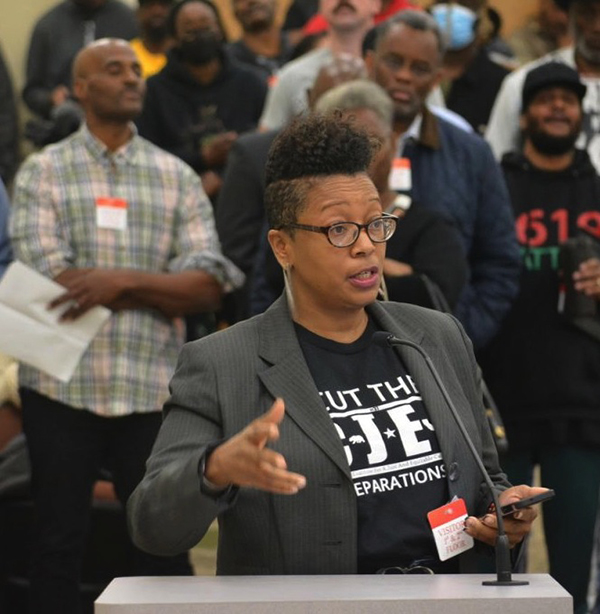By Shirley Hawkins
Contributing Writer
LOS ANGELES — Paula Madison certainly qualifies as a renaissance woman.
Madison is the former president and general manager of NBC4 Los Angeles who also served as the Los Angeles regional general manager for NBC Universal’s Telemundo TV stations as well as the vice president. Prior to that she was the news director of NBC4 New York.
A former owner of the Los Angeles Sparks, Madison now serves as the chairman and CEO of Madison Media Management, a Los Angeles-based media consultancy company. She also served as the vice president of the Los Angeles Police Commission in 2015.
The veteran journalist also spends her time as the advertising and media executive of the Africa Channel which is seen on cable in the United States, Canada, the Caribbean and Latin America.
“The Africa Channel can be viewed on Amazon TV, Roku, Pluto and on Demand Africa.com,” she added.
Madison is the daughter of Nell Vera Lowe, a woman of Chinese/Jamaican heritage. Madison’s mother and father emigrated to the U.S. from Jamaica to Harlem in 1945 where they raised Paula and her two brothers, Elrick and Howard.
But Madison remembers the tinge of sadness that covered her mother’s face whenever she asked about Nell’s family. “I believe my mother was lonely for her family members in China,” Madison said.
Madison said her family’s history is bittersweet.
“My grandfather, Samuel Lowe, who was Hakka Chinese, migrated to Kingston, Jamaica in 1905 when he was 15,” Madison said. “He had relationships with two African Jamaican women who worked in his two grocery stores. He had children, one of whom was my mother.
“But his family wanted him to marry a Chinese woman which they sent to him to marry sight unseen. His children were all born in Jamaica. Five were born to his Chinese wife and two born to his African Jamaican partner, Emma Allison, who worked in Lowe’s grocery store.
“My mother Nell was born to Alberta Campbell, who worked 40 miles away in Lowe’s second grocery store.
Lowe eventually said goodbye to his Jamaican family and returned to China in 1933. He took his Chinese wife, their five children and his daughter from the relationship with his former partner, Emma Allison. His son stayed behind with Allison.
“My grandmother, Albertha Campbell, was angry that Lowe had married a Chinese wife. She took Nell away when she was 3 years old and Samuel Lowe never saw her again.”
After retiring from NBC, Madison was determined to fulfill a promise to her mother to connect to her estranged father’s people. She and her brothers searched for clues and were successful in tracing their family’s Chinese roots. They traveled to China in 2012 to meet the descendants of her grandfather, where they reconnected with 300 descendants.
“The reunion was joyful,” Madison said. “There was a lot of hugging and speaking in languages — Cantonese, Mandarin and English. We had dinner and presentations. We spent two weeks in China.”
Upon returning to the states, Madison produced a documentary about her journey, “Finding Samuel Lowe: From Harlem to China,” which chronicles her journey to her maternal grandfather’s homeland in China, and a memoir, “Finding Samuel Lowe China, Jamaica, Harlem” published in 2015, which details the history of the Lowe family and the emotional reunion that occurred during their visit. She also discovered that her Chinese family’s lineage dated back more than 3,000 years.
“That news was quite a revelation and a shock,” Madison said. “The part of me that was Chinese could trace my lineage to the year 1006 B.C.
Although she is now retired, the award-winning journalist, who spent over three decades in the news industry, keeps her pulse on the news business and how it continues to evolve.
“Today people are getting information, but it is not necessarily journalism. It’s taken for fact and sometimes it’s not factual, but people believe it and it’s not necessarily journalism.
“What concerns me is that people are mistakenly taking information for journalism and it is not,” she said. “The goal is to have stories to be fact-based. We would like to say that if it is news, journalism is involved.
“People have smartphones that serve as the primary means of communication now,” Madison said. “Then you have citizen journalism where the average person will shoot a video of a tornado or a person stealing a car.
“In the old days, news operations had to have their own people on the scene or obtain their news footage from a stringer. But we still have journalists who are breaking amazing stories,” she added.
She also commented on how some news outlets have a tendency to report “salacious” stories to increase their audience.
“It’s become that proverbial slippery slope,” she said. “Once you start down that path, it becomes about what news reports are more financially viable and how many viewers the outlet can attract. Now newspapers, websites and TV stations tell readers to go to their website and just upload.
“We’ve blurred the lines,” she added. “We haven’t made sure that what is journalism is recognized as journalism. In an era where schools are not teaching civics and they attempt to limit the info you get in the library, how can you tell what is fact based?”
Madison, whose family owns the Africa Channel, said she is excited about the momentous growth of the film industry in Africa.
“Nigeria is the number one market for the continent of Africa and has been number one for filmmaking for a long time,” she said. “After that the number two and three markets are South Africa and Ghana. Many of the popular African dramas have been seen in America and have proven to be breakthroughs in the states.”
Madison said that many African Americans harbor a wrong impression of Africa, thinking that it remains underdeveloped.
“People think Africa is rife with war, famine and jungles. But Africa is huge — there are 54 nations in Africa and not all of them are poor,” she said.
“For 10 to 20 years, parts of Africa did not have infrastructure or roads and there was very little electricity. But in the past 15 years, development in Africa has been exploding. The technological advances occuring in Africa right now are very exciting to me.”
Madison talked about how she would like to see more African Americans think about ownership.
“You can own distribution and create content. You can own the means of distribution,” she said. “People will tell you to get a good job. That is considered the definition of success.
“There is nothing wrong with having a good job, but what if you were the owner? That’s a whole different way of thinking.
“I want journalists, writers and producers to understand that I too was a working journalist who had reached the top echelon of journalism. But I never intended that to be my only work.”
Madison said that her parents were the inspiration for her success.
“When my parents left Jamaica and brought me to the states, I would hurry home from school and proudly show them my report card. I would usually have all ‘A’s,” but once I got a ‘B’ grade. They told me, “We did not come to this country for you to get a ‘B.’ We came to this country for you to be wealthy.”
Shirley Hawkins is a freelance reporter for Wave Newspapers. She can be reached at metropressnews@gmail.com.













